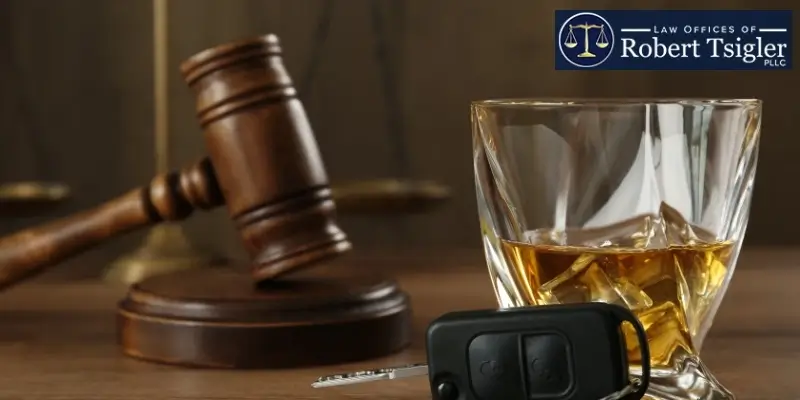Driving while intoxicated (DWI), also known as driving under the influence (DUI) of drugs or alcohol, is one of the most commonly prosecuted criminal offenses throughout the United States. If you are arrested for DWI, it is crucial to know the New Jersey DWI laws as they apply to your case and the value of having experienced criminal defense representation on your side.
DWI Laws All Drivers Must Know
New Jersey uses a blood-alcohol concentration (BAC) measurement system to determine whether a driver is under the influence of alcohol. The legal BAC limit for most drivers is .08%. Any amount above this constitutes a DWI offense. However, the legal limit for drivers under 21 is only .01%, meaning any detectable alcohol will result in a DWI charge. Alternative rules apply for commercial drivers and drivers on probation for prior DWI offenses.
A police officer can conduct a traffic stop for suspected DWI once they establish a reasonable suspicion that the driver is impaired. They may see the driver leave an establishment that serves alcohol and get into their vehicle, witness them driving erratically, or the driver might commit a moving violation such as an illegal turn or running a stop sign or red light. Once stopped, the police officer will need to establish probable cause to arrest the driver for suspected DWI.
All drivers provide implied consent to chemical testing for DWI, meaning if a police officer stops them for suspected DWI, they must consent to a breathalyzer test. Refusing to submit to a breathalyzer test carries severe penalties, including an entirely separate criminal charge added to the case. The defendant will also face an automatic driver’s license suspension and increased penalties if they are later convicted of DWI.
Possible Penalties for DWI
When it comes to DWI convictions, the state scales penalties based on the defendant’s criminal record. If they have a record of past DWI convictions, they will automatically face increased penalties if they are convicted of another DWI. Additionally, some factors can escalate the severity of a DWI offense, such as causing an accident. This is especially true if the DWI driver caused severe injury or death to another person.
Generally, a DWI conviction will result in a fine, a driver’s license suspension, the required installation of an ignition interlock device (IID) on the vehicle, and mandatory DWI courses. These penalties increase based on the severity of the defendant’s actions, their criminal record, their BAC level, and whether they were intoxicated by multiple substances at the time of their arrest.
The Law Offices of Robert Tsigler, PLLC, can help you navigate a criminal case for DWI in the state with peace of mind. It is vital to exercise your right to legal counsel after any arrest, and the sooner you connect with a defense lawyer, the sooner they can start working on your case. After arrest, remain silent until you can contact an attorney, and your defense team will help you understand your options in this difficult situation.
FAQs
What Are the New DWI Laws?
The newest DWI laws in the state took effect in 2024 under S-3011/A-4800. This new law changes the way DWI offenses are penalized and allows defendant to have an IID voluntarily installed on their vehicle to protect their right to drive after a DWI arrest. While this option is not available to every defendant, those who can show a need to be able to drive while their case unfolds can have an IID installed at their own expense.
Are Breathalyzer Tests Required Before an Arrest Is Made?
Yes, breathalyzer tests are required in the state. If the police conduct a traffic stop and have probable cause to believe the driver is intoxicated, the driver must consent to a preliminary alcohol screening under the state’s implied consent law. Refusal of this test can result in an additional criminal charge for test refusal, an immediate driver’s license suspension, and heavier penalties if the driver is later convicted of DWI.
What Happens if You Have a Prior DWI and Are Arrested for a Second DWI?
If you have a prior DWI conviction on your record and are arrested for a second DWI, you can expect to face significantly harsher penalties. In the state and many other states, penalties for DWI convictions increase with subsequent offenses. It is possible for a defendant convicted of a second DWI to face several years of driver’s license suspension, and after this suspension period, they will need to have an IID installed on their vehicle.
What Is the Penalty for a First DWI Offense?
The penalty for a first DWI offense in the state usually includes a fine of up to $500, driver’s license suspension until an IID is installed on the defendant’s vehicle, and mandatory classes for driver safety and DWI education. It’s important to note that certain factors can increase the severity of these penalties. For example, causing an accident resulting in injury or death could lead to felony prosecution and much harsher penalties.
Why Should I Hire a Defense Attorney for DWI?
You should hire a defense attorney for DWI because you must exercise your right to legal representation to reach the optimal conclusion to your case. If you were wrongfully arrested or the police do not have a strong case against you, the right attorney can potentially help you avoid conviction. If you did commit a DWI, your attorney can still provide valuable assistance by potentially helping you secure a lighter sentence.
The Law Offices of Robert Tsigler, PLLC, has extensive experience in criminal defense, and our firm has successfully represented many past clients facing DWI charges in the state. If you or a loved one is arrested for DWI, it is crucial to connect with an experienced attorney as quickly as possible to have the greatest chance of avoiding the worst penalties you face. Contact us today to schedule a consultation with a DWI defense lawyer.




















